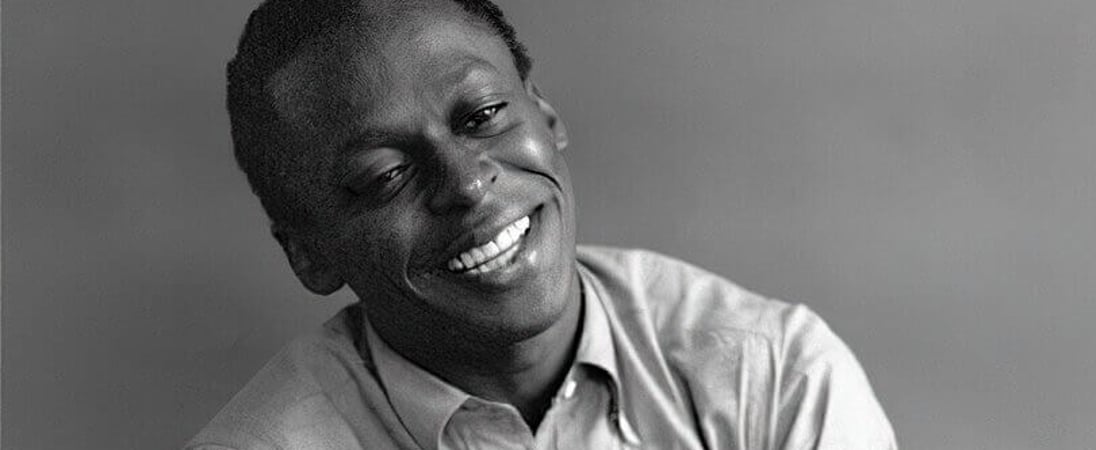
Miles Davis' birthday
Miles Davis, born on May 26, 1926, was a remarkable jazz musician. He grew up in a musical environment and quickly showed his talent.
His trumpet playing and innovative approaches changed jazz forever. Davis’s music touched hearts worldwide, making him a legend in the genre. His journey through different jazz styles always made listeners eager for more.
Miles Davis’ Early Life
Miles Davis was born in Alton, Illinois, and raised in East St. Louis. His family was well-off, with his father a dentist and his mother a music teacher.
From a young age, Miles was surrounded by music. His mother played the piano, and his father bought him a trumpet when he was just thirteen. This gift sparked his lifelong passion for jazz.
Miles quickly excelled at the trumpet. His father hired a local musician to teach him, and Miles absorbed everything like a sponge.
He played in his high school band, standing out for his talent. Jazz was in his blood, and he knew it was his calling.
For his education, Miles went to the Institute of Musical Art in New York City, now known as Juilliard. There, he studied classical music but soon found his interest drawn more towards the bustling jazz scene of Harlem.
He often skipped classes to immerse himself in this vibrant world. In these nightclubs, Miles met jazz greats like Charlie Parker. These experiences shaped his future in music, leading him to create his unique style.
Miles Davis’s Triumphs in Jazz
Miles Davis quickly became a key figure in the jazz world. In the late 1940s, he joined Charlie Parker’s group, playing bebop, a fast-paced jazz style.
But Miles didn’t stop there. He wanted to explore new sounds. In 1949, he released “Birth of the Cool,” an album that started the cool jazz movement. This style was more relaxed and had a broader appeal.
The 1950s brought more success for Miles. He formed the “Miles Davis Quintet,” a group featuring John Coltrane.
Their album “Kind of Blue,” released in 1959, remains one of the best-selling jazz albums ever. It introduced modal jazz, focusing on scales rather than chord progressions. This album changed jazz forever and influenced many musicians.
Miles didn’t just stick to one style. He constantly evolved, exploring different sounds. In the 1960s, he ventured into fusion, blending jazz with rock and electronic music. His 1970 album “Bitches Brew” was a landmark in this genre. It broke boundaries and attracted a new, younger audience to jazz.
Miles Davis won multiple Grammy Awards throughout his career. He was also inducted into the Rock and Roll Hall of Fame, a rare honor for a jazz musician.
His influence on jazz and music, in general, is undeniable. Miles Davis remains a symbol of innovation and creativity in music. His life and work continue to inspire musicians around the world.
Interesting Facts About Miles Davis
Child Prodigy: Miles Davis was playing music by ear by the age of 12, showing early signs of his exceptional talent.
A Star-studded Collaboration: In 1957, Miles collaborated with legendary arranger Gil Evans for the album “Miles Ahead,” showcasing a unique blend of jazz and classical music.
Art Enthusiast: Apart from music, Miles had a passion for art. He painted and drew throughout his life, and his artwork has been exhibited posthumously.
Film Score Composer: Demonstrating his versatility, Miles composed the score for the 1958 French film “Ascenseur pour l’échafaud,” creating it entirely through improvisation.
Autobiography: In 1989, he published his autobiography, giving an unfiltered view into his life and the jazz scene.
Collaboration with Hip-Hop Artists: In the late 1980s, Miles collaborated with hip-hop artists, showing his willingness to explore contemporary music genres.
Presidential Recognition: In 1984, he was honored with the Légion d’Honneur, France’s highest civilian award, and later received the National Medal of Arts from President Ronald Reagan.
A Street Named After Him: In 1991, the street where he grew up in East St. Louis was renamed Miles Davis Avenue in his honor.
Also on this date...
National Paper Airplane Day
Grab a piece of paper, fold it up, and let fly. Challenge your friends and family to a contest, and see who can make the fastest or farthest-flying plane.
World Dracula Day
Host a Gothic party, or watch any of the great adaptations of Bram Stoker’s absolutely iconic piece of Gothic literature, the eponymous Dracula.
National Blueberry Cheesecake Day
Try making your own blueberry cheesecake, or visit a bakery or restaurant to enjoy this cheesy, sweet, tangy graham cracker-crusted treat.




